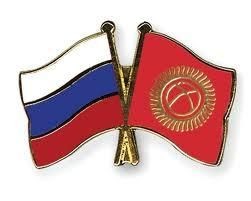BISHKEK (TCA) — The Chairperson of the Russian-Kyrgyz Development Fund (RKDF) Nursulu Akhmetova this week told the media about the results, new directions and prospects of the Fund activities.
Affordable housing
The RKDF began working in a new direction — construction of affordable housing for state employees. The pilot project covers six regional centers of the country. The Fund acts as the customer of construction of affordable housing in the regions. The budget for the first stage of the social housing project is $10 million.
If the pilot project is successful, the program will be continued.
The project will have a social impact as it will not only solve the problem of the construction of economy-class housing, but also support the construction market in the country, Akhmetova said. The RKDF acts as the Government’s partner in the National Affordable Housing Program until 2020.
On February 12, the Fund and the State Mortgage Company signed a memorandum of cooperation according to which the RKDF will finance construction of multi-story economy-class housing and the State Mortgage Company will buy completed housing for its further sale within the National Affordable Housing Program.
It is planned to hold a tender for the construction of affordable housing in the regions. The tender will be open to all construction companies, including from Russia. According to the Fund’s terms, a construction company should maximally attract local labor force and use local building materials. The cost per one square meter of housing should not exceed $380.
In 2015, the RKDF completed its formation and has launched a program to finance small and medium-sized enterprises and is ready to work actively and effectively in 2016, the Fund’s head said.
Working with banks
Two state-owned banks which on-lend money from the Fund — Aiyl (Agricultural) Bank and RSK Bank (Settlement and Savings Company) — have approved 113 projects for 1.2 billion soms and issued loans to 106 enterprises for 974 million soms.
The two banks have already allocated funds to 61 agricultural companies, and 18 companies were involved in animal husbandry and harvesting of agricultural products. 36 businesses related to the processing industry received 380 million soms of loans. Two companies in the energy sector received 147.5 million soms. Mining and steel companies received loans of 56.4 million soms.
As the program has proven successful, the RKDF has expanded its program to support small and medium business, providing preferential loans at 12% per annum. The Fund has recently signed an agreement with the Kyrgyz Investment and Credit Bank (KICB) and allocated 350 million soms to the bank. The Bank has already started to implement the program.
Later this month the RKDF plans to allocate additional 350 million soms to both partner state banks to continue the lending program for SMEs.
The RKDF Program to support SMEs prioritizes the development of agriculture, garment, textile and manufacturing industries.
Plans
The RKDF plans to finance 15 projects for $107 million in 2016. The Fund seeks to finance projects that are of strategic importance and have a multiplier effect.
The Fund plans to simplify the terms of lending and documentation procedures to make the SME financing project more active.
Priorities
One of the priorities of the Fund is development of the agro-industrial complex. The Fund has already financed companies involved in crop production, animal husbandry, and processing of agricultural products.
The Fund Management has visited regions to see how the funded projects are being implemented.
In the Talas province, a company received an 8 million som loan to purchase fine-wool sheep. The project is small, but it helps to restore the former glory of Kyrgyzstan as a leading manufacturer of merino wool. After the collapse of the Soviet Union this sector of the livestock industry was destroyed as there was no support from the state.
The RKDF also prioritizes the development of gardening. There are good gardens in the Issyk-Kul and Batken provinces, and they need help. The Fund decided to lend to the sector and improve financing terms for those engaged in gardening. The development of the gardens needs a grace period, because the orchards bear fruit, and bring revenue, only in the third year after planting. The Fund plans to extend the grace period for gardeners.
One project suggests creation of large gardens in the Issyk-Kul province on 340 hectares. Another project, worth $12 million, provides for modernization of a sugar beet processing plant. Its implementation will help revive the production of sugar beet and give a significant effect on the economy.
A $5 million project plans to construct a flour mill in the south of the country. It will process 150 tons of grain per day. The project will increase the share of the domestic flour and flour products in the domestic market and export them to Tajikistan and Uzbekistan.
At the end of last year, Kyrgyz President Atambayev criticized the RKDF work, saying that its credit portfolio was too small. Akhmetova told journalists about the reasons for the slow work of the Fund — the Russian side has unilaterally established a secretariat which replaced the board and they alone make decisions, which had slowed down the work of the Fund.
There are problems in any startup, and soon the proposals for their solution will be discussed at the Fund’s Board of Directors. Akhmetova hopes that the Board will approve changes to the investment and credit policies of the Fund. The SME lending program will continue, she added.

